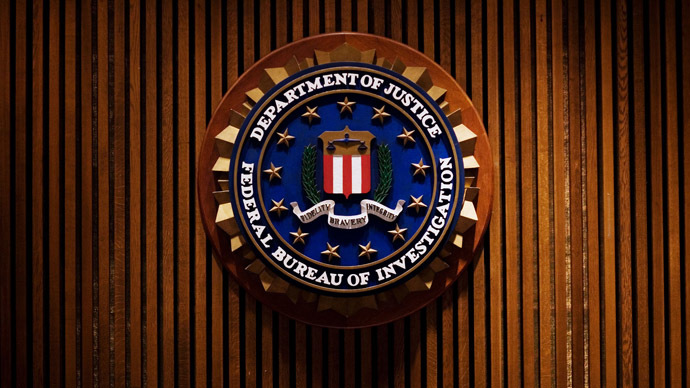‘US intelligence needs prosecutions to get more budget dollars’

There is competition among 17 US intelligence agencies - they catch people whether it is within the law or not to get part of the multi-billion ‘black budget,’ George Mapp, an investigative journalist, said on RT’s In the Now show.
The FBI has acknowledged it faked an AP story to snare a suspect in a series of school bomb threats in 2007. However, the agency denied earlier allegations that it spoofed a Seattle Times web page as part of the investigation. Both the Associated Press and the Seattle Times objected to the FBI's actions.
Back in June 2007, police in suburban Lacey, near Olympia, asked the bureau for help after a series of bomb threats that led to several evacuations at Timberline High School. The FBI in Seattle said they lured the 15-year-old suspect into revealing the location and IP of his computer by sending a link that led to a fake AP story about the bomb threats. By clicking on the link, the suspect helped agents to identity him.
Documents obtained by the Electronic Freedom Foundation suggested that the story was posted on a fake Seattle Times site, but Seattle FBI spokeswoman Ayn Dietrich said on Tuesday it was wrong and there was no reference to The Seattle Times.
READ MORE:FBI pretended to be Seattle newspaper in order to hack suspect’s computer
RT:The FBI claims their goals are to catch criminals and terrorists. What can you say on this subject?
George Mapp: When you are operating outside the law, there’s a couple of problems here with that. First of all, the person who was arrested was a minor. If you catch somebody or entrap them in a potential crime using illegal methods then what does it mean to the prosecution? Is it still legal? So there are a lot of problems with that.
RT:The FBI is a secret agency and the line is always fine on what they can do legally and illegally. Do you have any understanding of further tactics that they use here trying to catch suspects?
GM: If there is a line, it is very blurred, if it exists at all. This is not just the FBI. Approximately about a week ago, the DEA (Drug Enforcement Administration) was using a fake Facebook profile to potentially catch a suspect. And Facebook said that the DEA violated their user agreement. I think in 2013, the DEA was using intelligence gathered in wiretaps to catch American citizens. They came under fire because they were accused of gaining that intelligence illegally. There is a huge problem, you have 17 intelligence agencies in the United States and there is a lot of competition. When you think about the black budget, it is in billions, $50 plus billion. There is a lot competition among the agencies to get part of the budget dollars. So they need prosecutions, they need arrest. It seems like the line keeps getting crossed or keeps getting moved out. It seems like there are no boundaries, there is this bravado among some of the agencies. The way they have been behaving lately is this “cowboy” attitude that will catch people by any means necessary, whether it is within the law or not.
RT:The Seattle Times, of course, got a good amount of PR. Do you think this case should draw attention to violations in terms of these tactics?
GM: I definitely think it will. The story is gaining attention and that is because it’s the media. Where does this end or what will this lead to - next time possibly there will be stories written that might not be true by intelligence agencies to try to catch suspects or smoke them out. When the media is involved like this, without their permission or without their knowledge, it is very scary.
RT:The FBI claims that they didn't use the logo of The Seattle Times. Is there going to be a case for them? If the FBI says they didn't do this how can you prove it?
GM: Exactly. There are a lot of legal issues here. And there is a big problem in our society - not just with intelligence agencies but with corporations, its technology and the laws. The legal system in this country hasn’t kept pace with the rapid advance in technology. If you are arrested by police officer - we are seeing now cases in the Supreme Court - can they access your technology, your smart phone without your permission? I think there is going to be a lot more issues about technology and wiretaps intelligence being used and gathered on Americans. See the NSA and Snowden. It just keeps happening again and again. It is not just the FBI, it’s the NSA, the CIA, the DEA special ops division. There is a combination of the NSA, the CIA, the FBI, the Department of Homeland Security (DHS) and IRS (Internal Revenue Service)… they were gathering intelligence on Americans. Some people are accusing them of gathering it illegally to build cases. If you are building cases and prosecuting people in a court of law, is that really due process if you are entrapping or catching people illegally?
The statements, views and opinions expressed in this column are solely those of the author and do not necessarily represent those of RT.
The statements, views and opinions expressed in this column are solely those of the author and do not necessarily represent those of RT.












